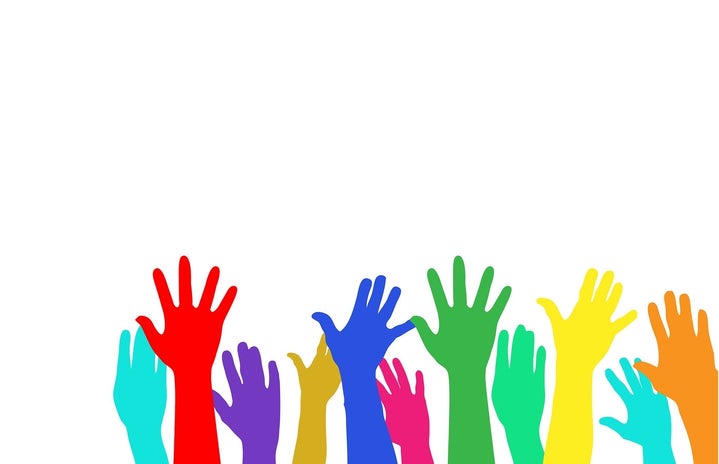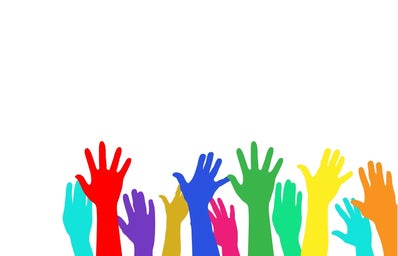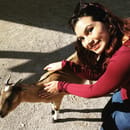Since being in quarantine, I’ve participated in several discussions regarding the well-known pandemic that has swept the world into outrage, sadness, and pure fear for what normalcy will look and feel like after it all ends.
Through finding things to do during this time, I felt compelled to hear opinions from different fields, so I decided to have a discussion with my sociology professor, Dr. Ajilna Karamehic- Muratovic, or Dr. KM. A lot of what we focused on in her class, Intro to Sociology: Diversity and Health Emphasis, included how society as a whole plays in a role in themes like gender, family, inequality, race, etc. It was fascinating to make these real-life connections when studying to see how COVID-19 had been affecting all these groups as well.
I interviewed her to see her perspective as a sociology professor, someone who studies these concepts and how and why various groups in our country are being affected by the pandemic.
The first aspect I noticed blaring out in my own community of metro-Detroit were the large number of African Americans living at or below the poverty line that are also experiencing exceedingly higher deaths compared to other groups. From the sociologist’s viewpoint, this isn’t a coincidence. It completely excludes any explanation of biology or personality, but rather focuses on the cultural factors that a majority of this group is exposed to growing up. This includes the type of neighborhood they’re raised in, how healthy the food available is, and even issues with the healthcare quality present in where you live. In Metro-Detroit hospitals, there’s been a surge of patients arriving from Detroit, Pontiac, Flint… areas more notorious for having these marginalized communities living at or below the poverty line. From this, it’s even more evident that because of these health inequalities, people being treated differently also fails to disappear. In fact, it makes it even more evident. In other words, are we really all equal? If not, large institutions that make up society have failed them, not necessarily themselves.
I was also particularly curious to see how Dr. KM was handling the drastic changes as a professor. I wanted to know what she was specifically doing to try to bridge these unequal gaps to give all her students an equal chance to perform well with a virtual education. The first thing that may not seem so obvious is access to internet. Sure, internet seems like a staple to a 21st century home, however, we forget to realize sometimes it’s not. Internet costs money and sometimes it’s the least of peoples concerns when they’re juggling a job, paying bills, taking care of family, etc. Dr. KM mentioned this has often been a large issue since classes are virtual and not everyone’s home environments are exactly ideal. So a common problem she’s noticed is the inability to deliver assignments on time. She has been more flexible as a professor to help those students that can’t work around the things they can’t control. I also have classmates from all over the world, which includes international students, who have to work one on one with Dr. KM to accommodate their needs in class. Once students leave campus, they are subjected back to the inequalities that may be present at home, leaving them at a disadvantage when receiving their education. But this comes back to society and how it functions that creates these disadvantages.
Along with these inequalities that COVID-19 has clearly unraveled, I was fascinated to hear about how she would think American culture as a whole is currently being socialized as we continue through the pandemic and make changes to our society. One question I asked Dr. KM regarding this was if she thinks our culture might be changed because of the heightened fears associated with Asian Americans for “bringing the virus” and essentially being blamed for COVID-19. She believed that culture is already changing. Several of her own Asian American students have mentioned their own experiences with blatant discrimination with a normal trip to the grocery store. Such as, being told to return to their own country and openly called out with blame. We even played devil’s advocate asking, okay, if we can’t refer to COVID as the Chinese virus, why were we allowed to call the pandemic in the early 1900s as the Spanish Flu? For many reasons, society is progressing. We don’t allow certain things to slide, especially in a tumultuous environment filled with panic and uncertainty that already exists from the extent of the virus’s impact itself. Regardless, it still brings up the discussion as to whether or not society truly has changed (as most events leading to panic are blamed on one group) and from sociology’s point of view that race is a social construct.
Among the groups mentioned that are affected by COVID-19, I think it’s interesting to discuss how children growing up during the pandemic may be socialized later on in their lives. Dr. KM’s children, like many, are in the early ages of their lives where socialization really begins. They begin to get shaped by factors like family, media, and school. She tried an activity with them, asking them to draw what they believed the virus looks like. One of them drew a tornado, another drew a figure that resembled worms, and the last drew an earth invaded by red aliens. It was pretty funny to hear, not going to lie. But I think it was interesting to see from a sociological lens that they understand there’s a reason there’s something unheard of happening in their lives. It could be the media that’s allowing them to understand whatever COVID-19 is, it may not end in rainbows and sunshine. Observing how children growing up in this pandemic, helps us also study why we are the way we are. It understands how our society tackle large issues and how the children growing up at that time view the world differently from generation to generation.
So, why does it even matter to understand the issues arisen from the virus with a sociological perspective? This was a question Dr. KM always made sure we answered ourselves in class. I think it gives us an explanation for how the world functions. There are reasons discrepancies exist in our healthcare system, reasons for why we react in panic and blame, and reasons for how society changes after a globally impactful event like this. Sociology suggests these reasons by understanding how we form communities to respond and react to these situations. It also teaches us how to make changes to our societies and what we understand about the world. The main takeaway I had with Dr. KM was that no one believed the impact that COVID had would get this far, revealed so much, and taken so much away from us. It’s challenged our understandings of how powerful we are in our ability to control situations that we truly don’t know the future of. But it initiates change and allows us to grow and not repeat the same mistakes we made before.



